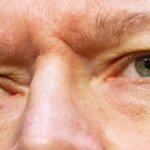At the University of Washington, researchers showcased how misinformation could spread not just on social media, but within scientific communication.
Released in the Proceedings of the National Academies of Sciences, researchers detailed how scientific papers and news stories of such papers may be used to spread misinformation.
“Most analyses of misinformation focus on popular and social media, but the scientific enterprise faces a parallel set of problems—from hype and hyperbole to publication bias and citation misdirection, predatory publishing, and filter bubbles,” the authors of the study wrote in their paper.
“In this perspective, we highlight these parallels and discuss future research directions and interventions,” the authors added.
In the paper, researchers highlight the negative effects of misinformation, with its potential to destabilize international peace, meddle in democratic decision making, and posing a threat to public health and the well-being of the world.
“Most of the research efforts and interventions examine broad, public consumption of misinformation—modeling the spreading dynamics of falsehoods, examining social network effects, and evaluating crowd-sourced mediation, with a special focus on crisis events and political elections,” the journal article reads.
“In this article, we turn the spotlight on science. We look at the ways that misinformation can travel within science due to misaligned incentives, out-of-date publishing norms, and sociotechnical systems that concentrate attention and credit on a small subset of the literature.”
The paper was authored by Jevin West and Carl Bergstrom.


